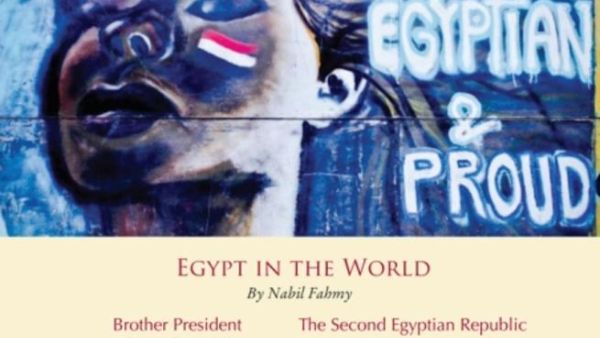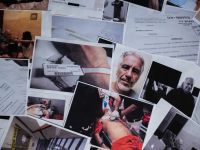Arab League Secretary General Nabil Elaraby strikes pessimistic note on Arab spring

Arab League Secretary General Nabil Elaraby says in a Cairo Review of Global Affairs interview published today that the Arab region is headed toward a renaissance after decades of military rule, but cautions “nothing is going to come overnight.”
In a wide-ranging interview with the quarterly journal of the School of Global Affairs and Public Policy (GAPP) at the American University in Cairo (AUC), Elaraby said that the common denominator in countries most affected by the Arab uprisings “is all have been governed for a number of years by regimes that came to power by coup d’etat. And they promised a lot for the people. Time passed, and they could not deliver.” He warned that the transition to democracy will take time, citing the experience of Eastern European nations after the fall of Communism. “What is needed in all Arab Spring countries is a modern secular state that will be able to run things for the sake of the people. By the people and for the people,” he said. “What I would say to the people who are going to Tahrir Square is that nothing is going to come overnight.”
In the interview, conducted on June 4, 2012, Elaraby criticized Egypt’s Supreme Council of the Armed Forces for proceeding with parliamentary and presidential elections before the drafting of a new Egyptian constitution. “The best thing in the American Constitution is the checks and balances,” he said. “And we don’t know what the checks and balances are going to be in Egypt.” Heading into the June presidential election runoff, he said, “was entering into the unknown.”
On the Syria crisis, Elaraby expressed exasperation not only with President Bashar Al-Assad’s “state of denial” but with what he viewed as a lack of pressure on Syria from Russia and China. Elaraby said he asked Al-Assad during a July 2011 meeting to stop fighting, release prisoners and begin meaningful reform, but nothing happened. “And he would say, ‘Look, you are now in Damascus.’ He told me that three times. ‘Go around. Nothing is happening here. Go to Aleppo. Nothing is happening there. It’s only the border.’ Now he is still saying it’s an outside conspiracy. The problem in Syria is internal. This regime has been powerful for a long time and people are entitled like every people in the world to go to the streets and ask for freedom, democracy, and social justice.”
Also in the Summer 2012 edition of the Cairo Review is a special report, Egypt Today and Tomorrow, featuring essays and articles by 35 authors including President Jimmy Carter, Ahmed Zewail, Mohamed El-Erian, Ahdaf Soueif, Nabil Fahmy, Gro Brundtland, Tarek Osman, Shadi Hamid, Issandr El Amrani, Ibrahim El-Houdaiby, Zeinab Abul-Magd, Steven A. Cook, Khaled Fahmy, Michael Wahid Hanna, Wendell Steavenson, Rami G. Khouri, Daniel Williams, and others.
The Cairo Review of Global Affairs is the quarterly journal of AUC’s School of Global Affairs and Public Policy (GAPP) and published by the American University in Cairo Press.
Background Information
American University of Cairo
Founded in 1919, AUC is a leading English-language, American-accredited institution of higher education and center of intellectual, social and cultural life of the Arab world. Its community of students, parents, faculty and staff, trustees, alumni and other generous sponsors represent more than 60 countries. The University stands as a crossroads for the world’s cultures and a vibrant forum for reasoned argument, spirited debate and understanding across the diversity of languages, facilities and human experiences.






